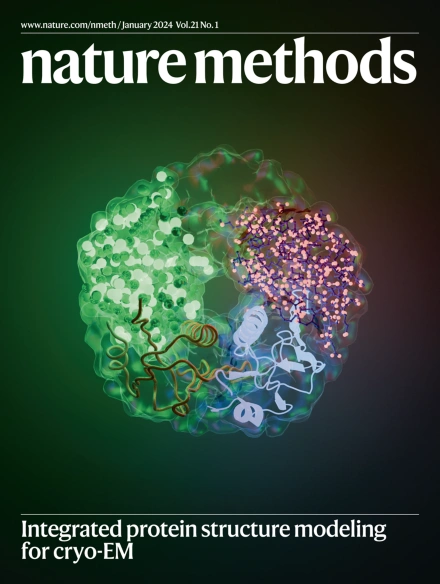Inferring allele-specific copy number aberrations and tumor phylogeography from spatially resolved transcriptomics
IF 36.1
1区 生物学
Q1 BIOCHEMICAL RESEARCH METHODS
引用次数: 0
Abstract
Analyzing somatic evolution within a tumor over time and across space is a key challenge in cancer research. Spatially resolved transcriptomics (SRT) measures gene expression at thousands of spatial locations in a tumor, but does not directly reveal genomic aberrations. We introduce CalicoST, an algorithm to simultaneously infer allele-specific copy number aberrations (CNAs) and reconstruct spatial tumor evolution, or phylogeography, from SRT data. CalicoST identifies important classes of CNAs—including copy-neutral loss of heterozygosity and mirrored subclonal CNAs—that are invisible to total copy number analysis. Using nine patients’ data from the Human Tumor Atlas Network, CalicoST achieves an average accuracy of 86%, approximately 21% higher than existing methods. CalicoST reconstructs a tumor phylogeography in three-dimensional space for two patients with multiple adjacent slices. CalicoST analysis of multiple SRT slices from a cancerous prostate organ reveals mirrored subclonal CNAs on the two sides of the prostate, forming a bifurcating phylogeography in both genetic and physical space. This work presents CalicoST for inferring allele-specific copy numbers and reconstructing spatial tumor evolution by using spatial transcriptomics data.

从空间解析转录组学推断等位基因特异性拷贝数畸变和肿瘤系统地理学
分析肿瘤内随时间和跨空间的体细胞进化是癌症研究中的一项关键挑战。空间分辨转录组学(SRT)可测量肿瘤内数千个空间位置的基因表达,但不能直接揭示基因组畸变。我们介绍了 CalicoST,这是一种同时推断等位基因特异性拷贝数畸变(CNA)和从 SRT 数据重建肿瘤空间进化或系统地理学的算法。CalicoST 能识别重要类别的 CNA,包括拷贝中性杂合性缺失和镜像亚克隆 CNA,而这些在总拷贝数分析中是不可见的。CalicoST 利用人类肿瘤图谱网络(Human Tumor Atlas Network)中九名患者的数据,实现了 86% 的平均准确率,比现有方法高出约 21%。CalicoST 利用多个相邻切片在三维空间中重建了两名患者的肿瘤系统地理学。CalicoST 对癌症前列腺器官的多个 SRT 切片进行分析,发现前列腺两侧存在镜像亚克隆 CNA,从而在遗传和物理空间形成了一个分叉的系统地理学。
本文章由计算机程序翻译,如有差异,请以英文原文为准。
求助全文
约1分钟内获得全文
求助全文
来源期刊

Nature Methods
生物-生化研究方法
CiteScore
58.70
自引率
1.70%
发文量
326
审稿时长
1 months
期刊介绍:
Nature Methods is a monthly journal that focuses on publishing innovative methods and substantial enhancements to fundamental life sciences research techniques. Geared towards a diverse, interdisciplinary readership of researchers in academia and industry engaged in laboratory work, the journal offers new tools for research and emphasizes the immediate practical significance of the featured work. It publishes primary research papers and reviews recent technical and methodological advancements, with a particular interest in primary methods papers relevant to the biological and biomedical sciences. This includes methods rooted in chemistry with practical applications for studying biological problems.
 求助内容:
求助内容: 应助结果提醒方式:
应助结果提醒方式:


